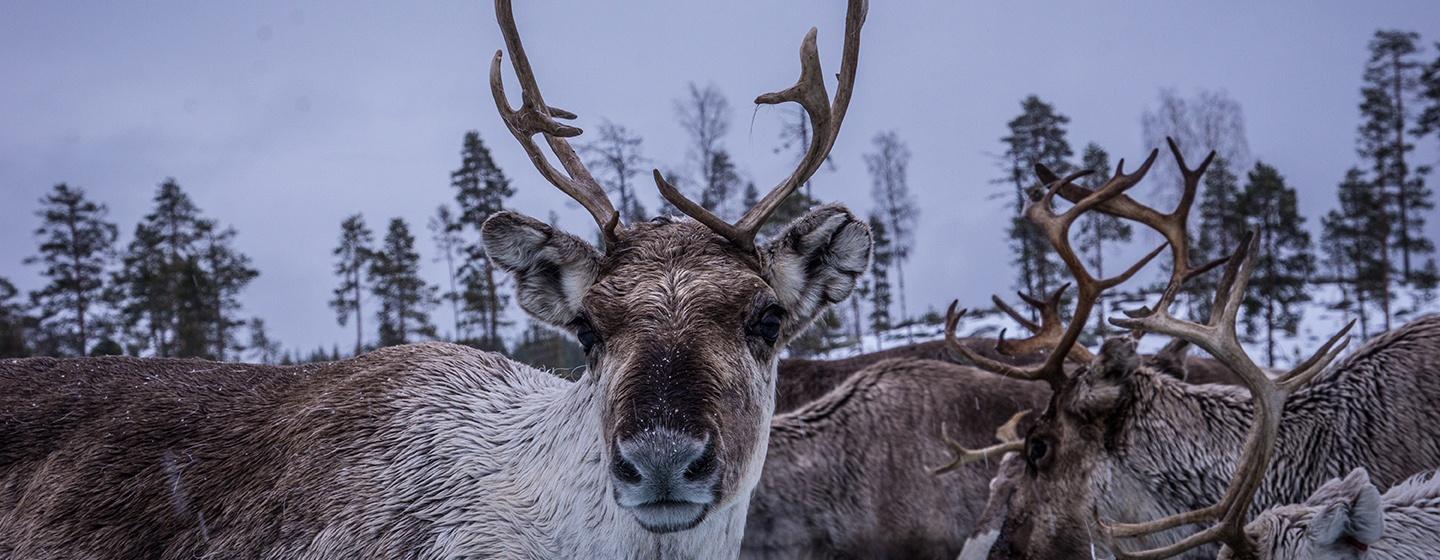#SmallScreenScenes @PBS EUROPE’S NEW WILD Premieres Wednesdays, February 3-24, 2021 on PBS

MCU reindeer.
Susan Wright/Nat Geo
Explore Europe like never before, as the wild heart of the continent is revitalized in four-part documentary series
Beyond the bustling cities lies a surprisingly vast wildland spanning millions of miles, where species that were threatened by extinction are being reintroduced to nature. From the Arctic Circle to rich river wetlands, EUROPE’S NEW WILD tells the inspiring story of an epic transformation, exploring the rebirth of the continent and Europe’s wildlife like never before. EUROPE’S NEW WILD premieres Wednesdays, February 3-24, 2021, 10:00-11:00 p.m. ET (check local listings) on PBS, pbs.org and the PBS Video app.
In the new four-part series, viewers will witness the resurgence of wildlife across the continent in the most unexpected places through captivating footage. As conservationists give nature a helping hand, each episode examines how ecosystems are being restored, providing a new chance for Europe’s most iconic wildlife to thrive among its breathtaking landscapes.
EPISODE 1 - “The Missing Lynx” (Wednesday, February 3)
Across the Iberian Peninsula, food chains and ecosystems are restored, allowing a host of endangered animals, including the Iberian Lynx --the rarest cat in the world—to flourish once again.
EPISODE 2 - “Return of the Titans” (Wednesday, February 10)
In Europe’s Carpathian Mountains, the introduction of Bison is helping numerous other species to prosper while just beyond this mountainous region, Gray Wolves are staging an astonishing return.
EPISODE 3 - “The Land of the Snow and Ice” (Wednesday, February 17)
Sami reindeer herders and modern conservationists are teaming up in a bid to save one of Europe’s wildest frontiers. Through ice and snow, the link between man and wild is being reforged.
EPISODE 4 - “Europe’s Amazon” (Wednesday, February 24)
The Danube is the largest preserved wetland on the continent and a sanctuary for thousands of species, where many are the last of their kind. Conservationists are working to preserve and restore these precious habitats before it’s too late.
EUROPE’S NEW WILD will stream simultaneously with broadcast and be available on all station-branded PBS platforms, including PBS.org and the PBS Video app, available on iOS, Android, Roku, Apple TV, Amazon Fire TV, Android TV, Samsung Smart TV and Chromecast.
EUROPE’S NEW WILD is produced by Off the Fence and Bonne Pioche Televison, executive produced by Allison Bean, Ellen Windemuth, Andrew Zikking, Pamela Caragol (NatGeo), Breanna Hoepner (NatGeo), produced by Sarah Peat and each episode was directed and produced by Sarah Peat (episode 1), Nadège Laici (episode 2), Paul Dennys (episodes 2, 3, 4) and Poppy Riddle (episode 4).
About PBS
PBS, with more than 330 member stations, offers all Americans the opportunity to explore new ideas and new worlds through television and digital content. Each month, PBS reaches over 120 million people through television and 26 million people online, inviting them to experience the worlds of science, history, nature and public affairs; to hear diverse viewpoints; and to take front row seats to world-class drama and performances. PBS’s broad array of programs has been consistently honored by the industry’s most coveted award competitions. Teachers of children from pre-K through 12th grade turn to PBS for digital content and services that help bring classroom lessons to life. Decades of research confirms that PBS’s premier children’s media service, PBS KIDS, helps children build critical literacy, math and social-emotional skills, enabling them to find success in school and life. Delivered through member stations, PBS KIDS offers high-quality educational content on TV— including a 24/7 channel, online at pbskids.org, via an array of mobile apps and in communities across America. More information about PBS is available at www.pbs.org, one of the leading dot-org websites on the internet, or by following PBS on Twitter, Facebook or through our apps for mobile and connected devices. S





































































































